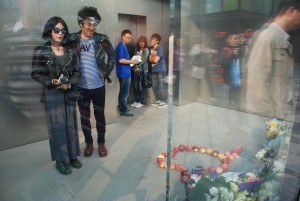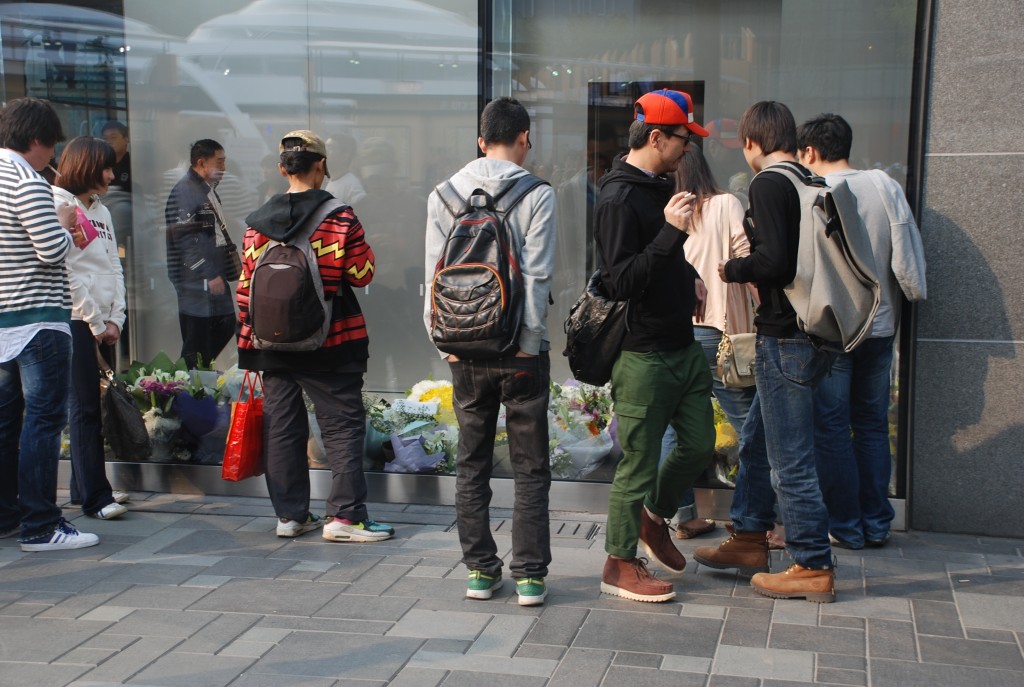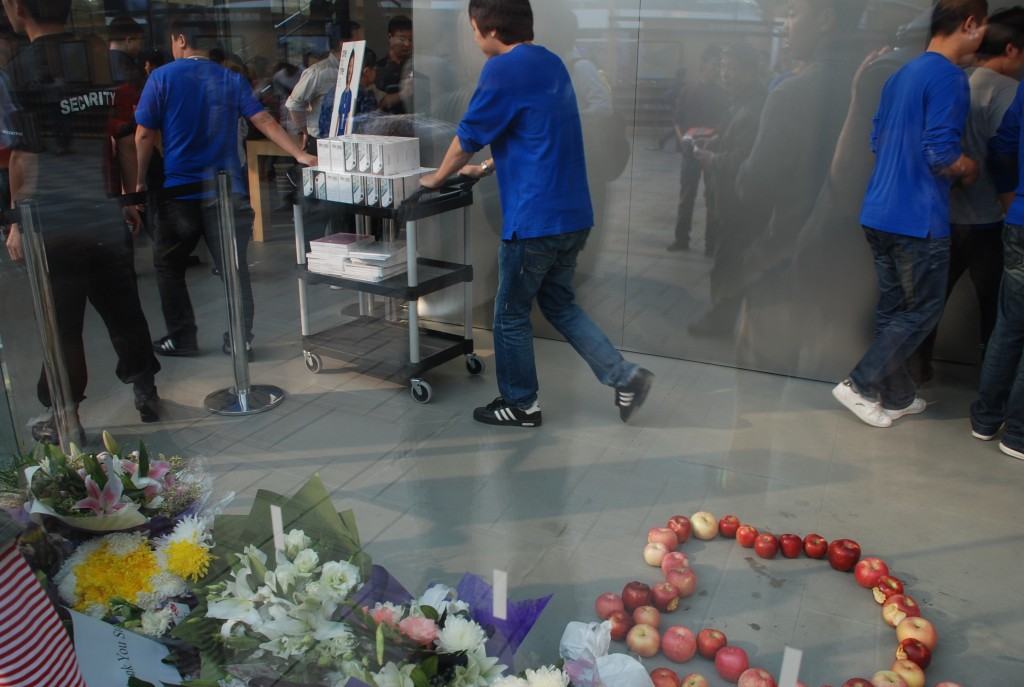There is a new shrine in Beijing to Steve Jobs (史蒂夫·乔布斯), the co-founder of Apple Computer who died this week.
At the capital’s only Apple store (苹果店) in located in Sanlitun (三里屯) in eastern Beijing, fans of Jobs chose to put down pieces of fresh apples as well as bouquets of flowers. White cards with messages written in English were addressed to “Steve.” Chinese tech whizzkids, Apple fanboys and middle class users of Apple products were here to mourn their loss.
Luna, a bespectacled girl of college age, told me she won’t stop buying Jobs’ products just because the personality behind the company had vanished. “The creativity of the products doesn’t just come from him,” she said.
Justin, a native of Australia teaching English at China Agricultural University, said that he was inspired by Jobs’ now infamous 2005 Stanford Commencement speech.
The rousing speech, which detailed work ethics based on living every day as your last, would find a new audience in Beijing, as Justin used the text in a classroom English assessment.
In more ways than one, Apple is fast becoming a status item for youth.

Wang Di, a musician, and his companion, are seen inside the Apple store after laying down a bouquet. (VOA - A. Xin Liu)
For many Chinese, the Mac has been a crucial part of their working lives. Wang Di, a musician, told me that he would choose Apple again and again. “I do not use popular Apple products such as iPhone, iPad and iTouch. But I’ve used Apple computers to work since 1993, including the Mac LC-II, 9600, G3 and G4.”
For Wang, the Macintosh was Jobs’ greatest invention. “Now I have three Apple computers. For almost 20 years, I composed, recorded and arranged music using Apple computers. The computer was so expensive back then but it was the only product that made audio recording.”
However, some of the reaction to the death of Jobs was mixed online.
On the CS gaming forum Sorpack user “Hu_Li_Bee” said
“I don’t even have a phone” in response to a posting about Jobs’ death. “我连手机都没有”
The Sina weibo user “Shakespeare’s Grief” feels that without Jobs, there is no hope for the future of Apple:
“In order to remember Jobs, I’ve decided to buy iPhone 4S, but this will be the last time that I buy the iPhone, a person without his soul is a corpse walking, and a product without its soul is like a tree that has been reduced to dead ash.” 为纪念Jobs,我决定买iPhone4S了,这是我最后一次购买iPhone,没有了灵魂的人如行尸走肉,没有灵魂的产品如槁木死灰。
On PCHome, one of the largest Chinese forums dedicated to computers and electronics, users expressed that they were using Nokia phones after a post by 毛熏肉㊣bacon_mao, who dislikes Jobs and Apple.
“This is great; Apple will rot within three years. Jobs, letting you die like this is a pity; it’s too good for you, because your products have resulted in pollution… in China [near the factories]. I really hope that their pain will be added onto you.” 刚才到apple官网看了下,真的 很好,苹果3年内就会烂掉。乔布斯,这样让你死,太可惜了,太便宜你了,因你的产品制造污染… 的人民,真心希望他们的痛苦都叠加在你身上
But the manufacturing cost of producing the iPhone in China were not on the minds of those I spoke to at the Apple store in Beijing. There, the outpouring of grief went on for an American visionary who popularized personal computers.
Inside the store, Meng Fanli, 40, told me, “Most of electronic products we bought are from Apple Inc., from the iPhone, the iPad, the iTouch to computers and laptops. Both my daughter and I use the iPhone 4.”
And Apple’s iPhone 4 continues to sell like hotcakes, as long lines snaked their way around the shop.


